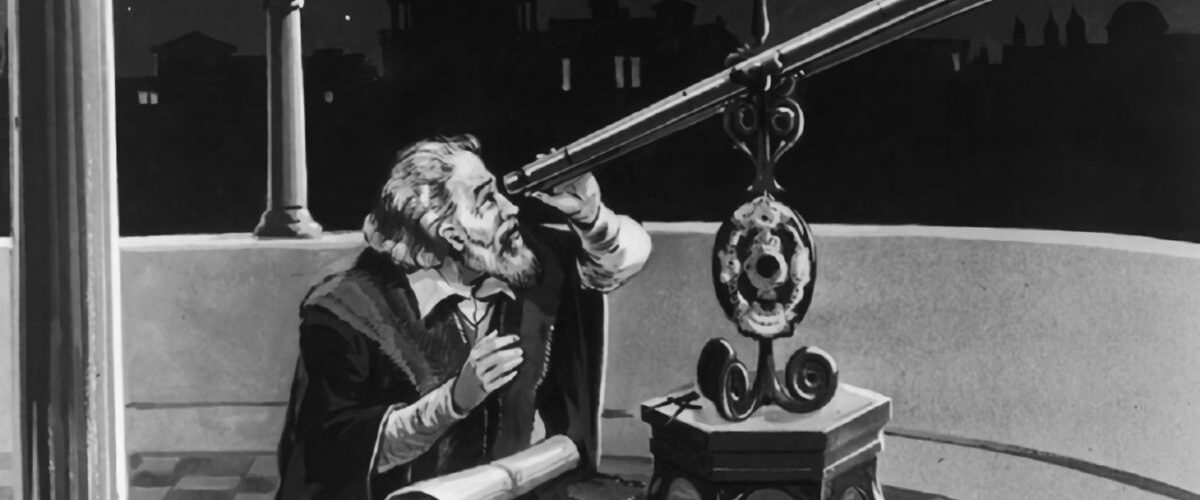You Knows, When Telescopes were invented?

From the earliest stargazers to modern astronomers, telescopes have been instrumental in expanding our understanding of the universe. These optical marvels, ranging from the simple yet profound to cutting-edge space telescopes, have revolutionized our view of distant galaxies, planets, and cosmic phenomena. In this exploration of telescopes, we delve into their rich history, intricate workings, and the profound impact they’ve had on humanity’s cosmic journey.
Founder of Telescope
The telescope was not invented by a single individual, but rather its development involved contributions from multiple inventors over time. However, Hans Lippershey, a Dutch eyeglass maker, is often credited with applying for the first patent for a telescope-like device in 1608. Galileo Galilei significantly improved upon the design and made important astronomical observations with the telescope in 1609.
Historical Journey of Telescopes
The story of telescopes begins with humble origins. In the early 17th century, inventors like Hans Lippershey and Galileo Galilei crafted rudimentary telescopes, paving the way for humanity to peer beyond the Earth’s atmosphere. Galileo’s observations of the Moon, Jupiter’s moons, and Saturn’s rings marked a turning point in our understanding of the solar system.
Optics Unveiled
The fundamental component of any telescope is its optics. Refracting telescopes, using lenses to gather and focus light, were the first to grace the astronomical stage. These evolved into the iconic long tubes with convex lenses at one end, reminiscent of Galileo’s design. The invention of reflecting telescopes by Isaac Newton, using mirrors instead of lenses, expanded the possibilities of telescope design.
Evolution of Telescope Designs
Telescopes come in various designs tailored for specific astronomical tasks. Reflecting telescopes, like those designed by Newton and later astronomers like William Herschel, became prevalent due to their elimination of chromatic aberrations. Refracting telescopes, with advancements in lens technology, remain essential for specific observations.
Landmark Observatories
Observatories equipped with powerful telescopes have played crucial roles in astronomical discoveries. From the historic Lick Observatory to modern giants like the Keck Observatory and the European Southern Observatory’s Very Large Telescope (VLT), these facilities enable astronomers to explore distant galaxies, nebulae, and exoplanets.
Space Telescopes
Taking astronomy beyond the constraints of Earth’s atmosphere, space telescopes have transformed our understanding of the cosmos. The Hubble Space Telescope, launched in 1990, has delivered breathtaking images and groundbreaking discoveries, from distant galaxies to the age of the universe. Other space telescopes, like Chandra X-ray Observatory and Spitzer Space Telescope, focus on specific wavelengths, revealing hidden cosmic phenomena.
Radio and Beyond
Telescopes extend beyond visible light, capturing radio waves, microwaves, and other wavelengths. Radio telescopes, such as the Arecibo Observatory and the Very Large Array (VLA), unveil the secrets of celestial objects emitting radio signals. Telescopes across the electromagnetic spectrum contribute to a comprehensive view of the universe.
Challenges and Innovations
Advancements in telescope technology continually push boundaries, addressing challenges like light pollution and atmospheric distortion. Adaptive optics, interferometry, and advancements in detector technology contribute to sharper images and increased observational capabilities.
Educational and Citizen Science Impact
Telescopes aren’t limited to professional astronomers. Amateur astronomers contribute significantly to astronomical discoveries, and affordable backyard telescopes make stargazing accessible to enthusiasts worldwide. Citizen science projects, like those supported by platforms such as Zooniverse, engage the public in real scientific research.
Future Horizons
The future of telescopes holds exciting prospects. Projects like the James Webb Space Telescope, set to launch soon, promise unprecedented insights into the early universe and the formation of planetary systems. Ground-based observatories and space telescopes will continue to unveil cosmic mysteries, pushing the boundaries of human knowledge.
Conclusion
Telescopes, from Galileo’s simple instrument to the sophisticated observatories of today, have been our cosmic windows, revealing the beauty and complexity of the universe. As technology advances and new discoveries unfold, telescopes remain essential tools for astronomers and stargazers alike, inviting us to explore the vastness of the cosmos and marvel at the wonders that lie beyond our celestial doorstep.








